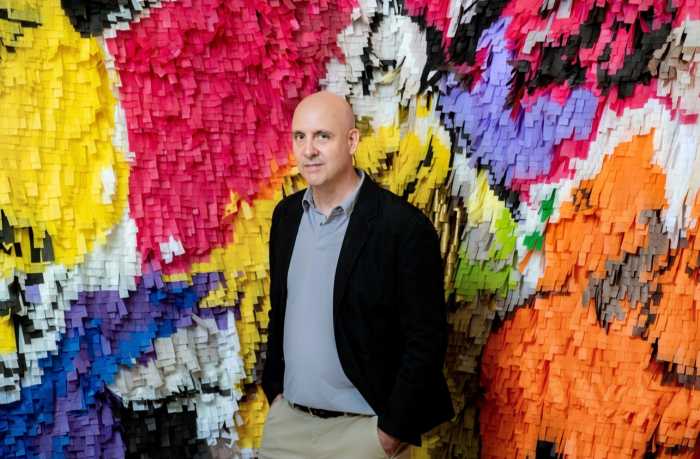Since being appointed executive director of El Museo del Barrio in 2017, Patrick Charpenel has spearheaded the expansion and reframing of the museum’s permanent collection, which focuses on the art and culture of Puerto Ricans and all Latin Americans in the United States. Under Charpenel’s leadership, El Museo has also launched LA TRIENAL, the only large-scale survey of Latinx contemporary art taking place every three years, as well as the Maestro Dobel Latinx Art Prize.
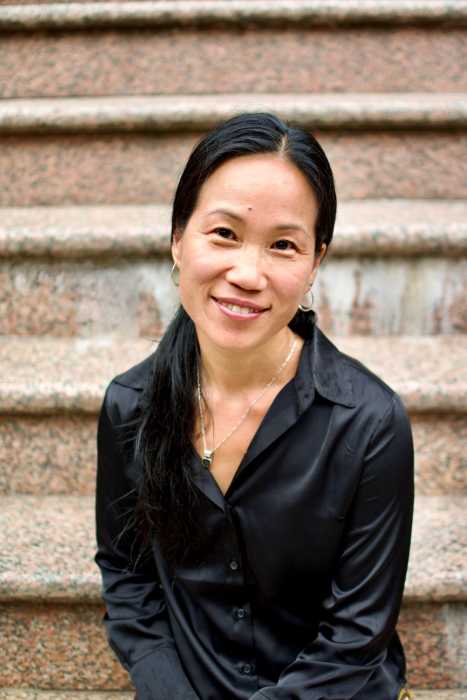
Sonya Chung
Director, Film Forum

Sonya Chung is a critically acclaimed novelist and essayist, and from 2009-22 was a professor of writing, literature, and media studies (NYU, Columbia, Skidmore College). A graduate of Columbia University, she previously served as Film Forum‘s development director, programming consultant, and deputy director, before becoming director. She also worked as a capacity-building consultant for arts organizations including Poetry Society of America and Housing Works Bookstore Cafe.
Is there anything you are working on that you wish more people knew about?
It’s a transition moment in the arts, generationally. How to create engaging programming and a welcoming environment for ALL? To persuade people of diverse ages/backgrounds it’s worth leaving your couch to come out for a great (celebrity-free) movie, a conversation with a brilliant (unknown) filmmaker, a soirée with fellow movie lovers? It’s an impossible goal – to be a cinematic haven for EVERYONE — but we care about it and are working on it constantly.
What advice do you have for the next generation of people determined to break into the world of arts and culture?
My advice to young, creative people is always, “Know thyself.” It is tempting, and not usually productive, to set goals and measure “success” against some abstract, external standard or shape of a life that has nothing to do with one’s own passions, values, and gifts. Knowing what YOU really want and have to offer is truly the hard part; once that’s clear, you can get there.
What can New York policymakers do to support the continued development of arts and culture in the city?
Engagement with the arts is too often seen as peripheral to human health. Food, shelter, employment, safety are primary needs; beauty, empathy, an expanded mind, moral vision, and community-building around all these empower us to be better at providing equitably across all sectors. I would love to see more resourced, facilitated opportunities for partnerships/bridges among organizations serving social and cultural needs. We’re all trying to help as many NYers as possible live well and fully.
If you could attend any event, show, or exhibit in the city tonight, what would it be and why?
On April 11, Dance Theater of Harlem will perform works by artistic director Robert Garland. DTH was co-founded by Arthur Mitchell (the first Black principal under George Balanchine), who wanted to ensure ballet was accessible to “everyone and every body.” I don’t get to the ballet often enough; I live mostly in movies and books. The live movement of bodies as an art form is a kind of beauty that moves and inspires me.

Raymond Codrington
President and CEO, Weeksville Heritage Center

Dr. Raymond Codrington is president and CEO of Weeksville Heritage Center. Before joining the Weeksville, he was the executive director of Hi-ARTS. Before Hi-ARTS, he was a senior research associate at the Aspen Institute. He has conducted research on race, equity, and popular culture in the U.S. and U.K., and Latin America. Raymond earned his doctorate in anthropology at the CUNY Graduate Center.
Is there anything you are working on that you wish more people knew about?
We have a green market that takes place in the summer and fall. The market represents an accessible way for our neighbors to get access to fresh fruits and vegetables. This leads us into a health and wellness initiative that is known as Weeksville Green which includes yoga and a youth planting program. This work maintains the important connection that historic Weeksville had to land use while addressing key issues today that impact our community.
What advice do you have for the next generation of people determined to break into the world of arts and culture?
Take your time and learn as you hone your craft. Be clear on what you know and what you don’t know. It is perfectly acceptable to not know how to do everything. Seek mentors and colleagues who you can confide in and seek advice from. Take the time to attend events and visit a range of institutions so that you are aware of what’s happening in the field.
What can New York policymakers do to support the continued development of arts and culture in the city?
Invest in culture and make this funding consistent year to year. There is a clear return on culture as it annually contributes $110 billion to the city’s economy. Cultural institutions are job creators, economic engines, and community anchors. Policy makers should think of arts and culture as essential services and fund them as such. New York City is a globally sought out city in part because of our world class arts and culture.
If you could attend any event, show, or exhibit in the city tonight, what would it be and why?
“The Harlem Renaissance and Transatlantic Modernism” at the MET is very well done. The exhibit has an amazing collection of artists and works. For me, the Aaron Douglass part of the exhibit was breathtaking. There are also beautiful sculptures by Richmond Barthes. Barthes has a 80 foot long frieze piece called “Exodus and Dance” located a half block from Weeksville. It was great to see the work of Barthes, albeit on a smaller scale.
Darren Lee Cole
Producing Artistic Director, SoHo Playhouse
Darren Lee Cole has built his career around producing groundbreaking works, directing stellar performances, and teaching some of the world’s finest actors. He has served as producing artistic director of the SoHo Playhouse since 2004. Since then he has produced or directed more than 50 groundbreaking pieces of theatre and won many of Off-Broadway’s most prestigious awards. He is the founder of Teatro Jaco and executive producer of the Fringe Encore Series, a program which invites emerging artists from Fringe Festivals to showcase their work in an extended run Off-Broadway at the historic SoHo Playhouse, giving extraordinary shows and performers a platform for future success.
Jacob A. Collins
President, The Salmagundi Club
Jacob Collins is the president of The Salmagundi Club and a leading figure in the contemporary revival of classical painting. He attended the New York Studio School, the New York Academy of Art, the Art Students League and earned a bachelor’s degree in history from Columbia College. Collins is the founder of Water Street Atelier, The Grand Central Academy of Art, and the Hudson River Fellowship. His work is showing in many prestigious museums around the world.
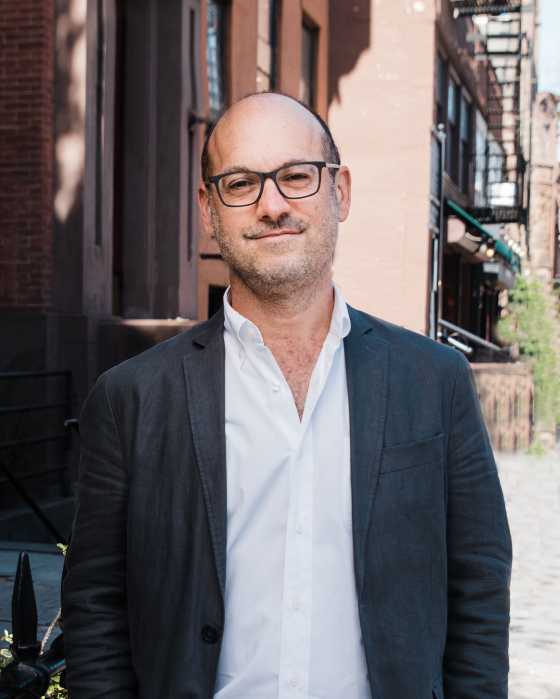
Chad Cooper
Executive Director, Brooklyn Conservatory of Music

Chad Cooper joined the Brooklyn Conservatory of Music‘s board of trustees in 2014 and served as its treasurer before joining the staff as executive director in 2016. Prior to joining the Conservatory, Chad worked for 16 years as an investment banker with Deutsche Bank. Earlier in his career, Chad spent four years working for the city of St. Louis, supporting community and economic development initiatives in economically distressed neighborhoods in St. Louis and East St. Louis.
Is there anything you are working on that you wish more people knew about?
The Brooklyn Conservatory of Music (BKCM) is well known for providing high-quality music education and music therapy to more than 7,000 New Yorkers across the boroughs, but BKCM also supports thousands of the city’s professional and emerging musicians in a couple of key ways: through our affordable studio rental program (the Studio Collective), and as a major employer that provides hundreds of paid gigs each year. For more on our Studio Collective: https://bkcm.org/rentals-at-bkcm/
What advice do you have for the next generation of people determined to break into the world of arts and culture?
Develop financial literacy. This can look different for different people, and it need not require formal training in every instance, but it’s important to be able to understand cash flow and how to build and manage budgets and a balance sheet. This knowledge will make any arts and culture administrator (or entrepreneur!) more effective. Arts and culture organizations are often complex, multifaceted businesses. Financial literacy is a pathway to fulfilling your organization’s mission.
What can New York policymakers do to support the continued development of arts and culture in the city?
I am grateful to our city’s policymakers. New York City is investing nearly $250 million through the Department of Cultural Affairs (that is more than the National Endowment!). The return on investment is huge in our city – the creative economy produces over $100 billion a year. I encourage our civic and business leaders to increase their investments – and in arts education specifically, which provides children the tools to participate in our creative economy as they grow up.
If you could attend any event, show, or exhibit in the city tonight, what would it be and why?
This is a tough one. I’m going to shift from music to sports and say either Cardinals vs. Yankees or Cardinals vs. Mets. Cards-Yankees pairs two storied baseball franchises, but Cards-Mets feels like a better rivalry. Either way, I’m rooting for a Cardinal victory! (Can you tell I’m from St. Louis?)
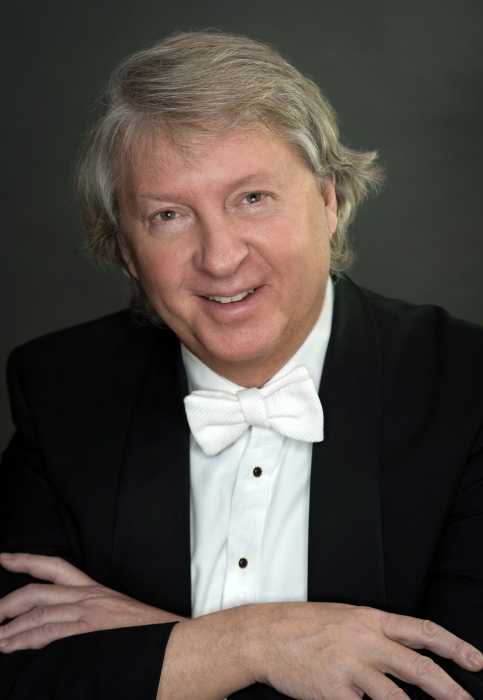
Thomas Crawford
Artistic Director and Founder, American Classical Orchestra

American Classical Orchestra’s (ACO) Artistic Director and Founder Thomas Crawford champions and brings period music to a wider audience. He founded two orchestras, commissioned works by composers including John Corigliano and collaborated with artists such as Joshua Bell and Yo-Yo Ma. An accomplished composer, organist, and choirmaster, Crawford won the BMI composition award and a Learning in the Arts for Children and Youth award from the National Endowment for the Arts for ACO’s outreach to schoolchildren.
Is there anything you are working on that you wish more people knew about?
Music as a healing force.
What advice do you have for the next generation of people determined to break into the world of arts and culture?
Pursue your original voice even when most people settle for derivative.
What can New York policymakers do to support the continued development of arts and culture in the city?
Continue to enable access to the arts for people of all ages and walks of life.
If you could attend any event, show, or exhibit in the city tonight, what would it be and why?
The New Museum in the Bowery, when it reopens in 2025. I view classical music as a living art form, that is, musicians perfect their craft and perform to live audiences. There is a necessary respect for the past, and a certain curatorial purpose. The New Museum provides less of the curatorial role and more of a ‘clean canvas’ for audiences. The balance of these two states is my daily quest.
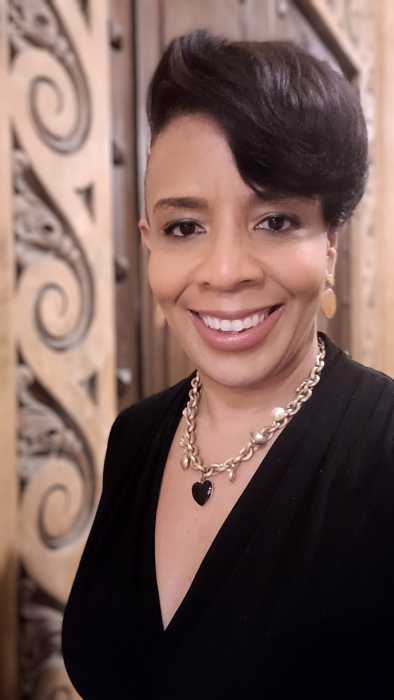
Laurie Cumbo
Commissioner, NYC Department of Cultural Affairs

Laurie Cumbo was appointed as commissioner of NYC’s Department of Cultural Affairs by Mayor Eric Adams in March 2022. Cumbo previously served as majority leader in the NYC Council, where she represented Brooklyn’s 35th district for eight years. In Council, Cumbo focused on institution building and worked to secure permanent homes for cultural institutions. Before that, she founded the Museum of Contemporary African Diasporan Arts and has worked at cultural institutions across the city.
Is there anything you are working on that you wish more people knew about?
The cultural sector is our greatest economic engine, creating jobs, fostering tourism, innovation, and vibrancy throughout our city. We’re proud that the Department of Cultural Affairs is the country’s largest cultural funder, but to support the full needs of this community, we need all hands on deck! So, we’re working with philanthropists, corporations, and foundations, to get them to invest long-term to make supporting the arts a part of their business model.
What advice do you have for the next generation of people determined to break into the world of arts and culture?
It’s thrilling to see young people who want to work in culture and fight for the greater social good. The arts can help us tackle the most pressing issues we’re facing as a society: wars, climate change, violence, racism. The arts are too often seen as an “extra” but they are critical for fostering the mutual understanding we need to chart the way forward on these issues. Many young people I meet understand this intuitively.
What can New York policymakers do to support the continued development of arts and culture in the city?
Policymakers need to move arts and culture to the core of New York City’s agenda. Research shows that the arts are central to healthy communities. They’re associated with improved well-being across critical indicators like public health, safety, and education. So it’s important that we move the arts to the center of our healthcare, educational, and economic policies. Culture is already present in every facet of our society; policymakers need to recognize and build on that.
If you could attend any event, show, or exhibit in the city tonight, what would it be and why?
Spring is in the air, and in NYC you can get outside and STILL have extraordinary cultural experiences. There are amazing botanical gardens including Snug Harbor, Brooklyn Botanic Garden, Queens Botanical Garden, NYBG, and Wave Hill. Governors Island has amazing cultural programs, as do parks conservancies like Madison Square Park. Thanks to the city’s “Open Streets” and “Open Culture” programs, our streets are also full of art. I want to be at all of these!
Alan Cumming
Co-Owner, Club Cumming
Alan Cumming is a multi-talented artist with work ranging from art house and independent films to big budget blockbusters. He is a Tony and Olivier award winning theatre actor dedicated to fostering a vibrant community around the arts and culture. He performs in concert regularly in halls around the world and co-owns his own, eponymous cabaret bar Club Cumming, a home for “all ages, all genders, all colors, all sexualities, where kindness is all and anything could happen!” Cumming recently hosted the hit reality television show “Traitors,” streaming on Peacock.
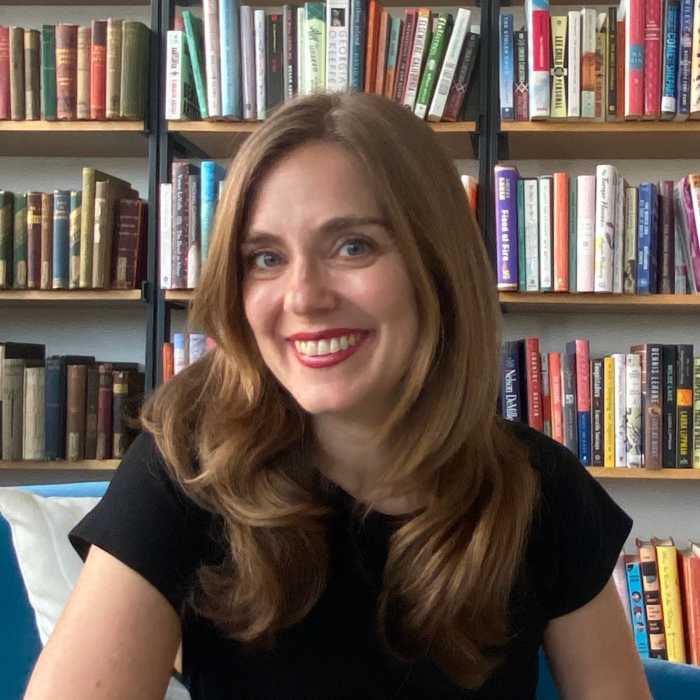
Lydah DeBin
Executive Director, The Center for Fiction

Prior to joining The Center for Fiction in 2023, Lydah DeBin held leadership positions at Literary Arts in Portland, Oregon. During her decade-long tenure – first as director of development and marketing before rising to deputy director – the organization became the fastest-growing literary nonprofit in the Pacific Northwest. Prior to her time at Literary Arts, Lydah worked in sales roles for Penguin Young Readers Group, Simon & Schuster, and Random House.
Is there anything you are working on that you wish more people knew about?
Our Emerging Writer Fellowship application opens May 1st. The program identifies nine talented writers and, over the course of a year, invests in their careers. We provide a $5,000 prize, membership to our Writers Studio, performance workshops, publication in an anthology, one-on-one consultations with an editor, public readings, and monthly dinners with publishing professionals. It’s free to apply, and all you need is a writing sample. Great opportunity for an early-career writer!
What advice do you have for the next generation of people determined to break into the world of arts and culture?
Development, or fundraising, is often overlooked as a way to get a foot in the door in arts and culture – and fundraising teams are so often looking for good people to hire! This type of work requires you to speak passionately about something you care about, and get others excited about it too. If you have dreams of arts leadership one day, it’s great to have this experience in your background.
What can New York policymakers do to support the continued development of arts and culture in the city?
Because the sector is still in recovery from pandemic closures and aftershocks, we need more unrestricted general operations funding to support organizations.
If you could attend any event, show, or exhibit in the city tonight, what would it be and why?
I’m looking forward to cheering on our neighbors here in the Brooklyn Arts and Culture district by attending the Mark Morris Dance Group’s “Orfeo ed Euridice” opening at the Met Opera in May. It’ll be the perfect accompaniment to our programming for the NEA Big Read with our friends at the Onassis Foundation celebrating Madeline Miller’s Circe for a whole month of mythology.


